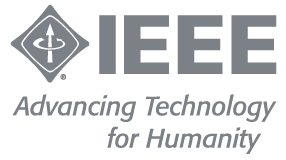
When I departed for graduate school, I had $1,500 in my bank account and an air ticket to LA. I figured I would get to the campus, rent a place to stay, and figure the rest out when I got there. Of course in LA, without a car, you can basically do nothing and go nowhere. They had busses of course, but shopping for food, as an example, would be quite a trip, and doing the laundry would be a real hassle. So I decided along the way: «You can live in a car but you cannot drive an apartment».
I went to the nearest used car lot and plopped down a handsome $800 for the only car I could afford that was driveable. In fact, it was a '69 Camero with a 200 hp 307 cubic inch V8 engine (I seem to recall), which while old, got to speed quickly and was very roadworthy. The original vinyl top was in disrepair, so I got a can of spray paint, tore off the vinyl, and spray painted it gray. It had no heat, no air conditioning, the breaks were good, and the tires were fair. My clothes and books were in the trunk and back seat, and I was good to go.
Sleeping in the front seat of a car with bucket seats is not all that comfortable, and the back was no better. USC was in South Central LA, so off campus was just too dangerous to sleep in the car. At night, I would rest a while, but when I awoke in the middle of the night, I would take a drive, sometimes sleeping along the pacific shore, sometimes in a residential area, sometimes on campus.
It was a few weeks later that, at about 3AM, I was driving along some city streets when I went under the highway through an underpass and was pulled over by an extremely nervous police officer who approached from behind with great caution, hand on his gun, and his partner on the other side of the car. Behind him were about 6 police cars with lights flashing at the top of the underpass, and in front a similar group was blocking the road ahead. There was a helicopter above as well. I was naturally a bit concerned and was on my best behaviour.
I hadn't been speeding, hadn't gone through any red lights, came to a complete stop before right turn on red, and so forth, this going through my mind quickly as I tried to identify why I might be pulled over. My window was rolled down, and I was sitting there with the engine running and lights on.
A bit about risk management
I pause here for a short discussion of risk management. Most people in business understand that in order to gain reward, you must take risks.- # Foolish risks have the potential to cause far greater negative outcomes than positive outcomes to the point where the rewards aren't worth the risks regardless of the odds. For example, Russian roulette when you have a choice not to play is a foolish risk.
- # Obvious risks are risks where the rewards are clear, the risks are clear, the odds are clear, and enough opportunities are available to where statistics works. In these cases, you simply multiply the odds by the risks and rewards and proceed with what favors you. Don't play the slot machines in Vegas, because obviously, the house wins. Do bet with even odds on Madison Bumgarner winning a baseball game, which by the way, is why you cannot get even odds on such a thing.
- # Reasonable risks are risks that you can reason through based on experience, statistics, history, and similar things. You can reason about them and thus you can anticipate future outcomes and constrain them through your actions and decisions. For example, if you sell used cars for a living, you know from experience whether you should lower the price on a car and how far with any given customer and when to do it. In fact you likely have the advantage because you do it every day and your customer likely does not.
- # Unknown risks are risks you cannot reasonably anticipate in advance. For example, the risk of getting shot when pulled over for legally driving the used car you legally purchased a few weeks ago from a legal used car dealer.
One of the interesting things about risk management is that it is not a static thing that you do once then roll the dice on. As time passes, if you manage your risks reasonably well, you get to change the game by your actions and decisions. Throwing good money after bad is usually a bad idea, and thus the notion of sunk costs. Doing the same thing repeatedly in the same situations and expecting different results is sometimes called insanity. The point is, as the risks change, you need to adapt in order to reasonably constrain future outcomes.
As obvious as this may seem looking back on it, people often allow emotions, exhaustion, altered states of mind, and personality issues to interfere with what you might later call sound decision-making.
Getting back to the events of the day
To my great good fortune, this was not one of those days when I was drunk, stoned, pissed off, or otherwise impaired. Taking the sound advice of my parents into account, I decided that the best approach when facing an armed person and not yourself armed.Well, actually I did have a serrated 8 inch long survival knife next to my left hand which I generally carried for self defense and in case of other emergency. But then I also remembered the old saying “Don't bring a knife to a gun fight”.
I just put it in park, put my hands in a visible and neutral position and waited for events to transpire. And transpire they did.
The officer asked me to produce my drivers license, which I did slowly and smoothly after saying "Yes sir", taking it from my wallet. He asked for my registration, which was still temporary, and I produced it without excessive movement from the glove box after saying "Yes sir". The officer asked if I knew why I was pulled over, and I said "No sir?". That's part of the police pleasant respectful thing.
At that point, I was thrown to the ground, shot several times, and died... OK - obviously not... After several minutes of radio and other communications to which I was not privy it was explained to me why I was pulled over.
Risks and resources
The thing about taking risks and gaining rewards, is those who have more resources have more chances to win. As a result, they can make more bets and take better advantage of probabilities. That's why, in poker, the person who wins the first big hand, is far more likely to win than anyone else. They can use their big stack to push other players around, forcing them to fold earlier than they might, bluffing more successfully because they can afford to lose, betting the odds instead of folding when squeezed because they can afford to lose, and waiting longer before they have to play a less ideal hand.In my case, I had one shot, there was one car that could realistically serve my needs, so I took the shot.
It had the unknown risks as well as the usual known risks (used cars fail in lots of different ways). In the end, the car served me for about 6 years, lasted me through graduate school, drove across the country, lasted for a year of marriage, but had to go when it's lack of heat became too much to bear in the winter drives between Pittsburgh and Bethlehem, PA twice a week. I traded it in for $500. Not bad for an $800 investment (risk) and one minor incident with a whole lot of police.
Why I was pulled over
It turns out the guy who owned the car before me was wanted on a variety of charges, including drugs and weapons charges and some form of homicide. He sold the car and moved on, but because the paperwork (which was all on paper in those days) takes a while, word had not yet gotten to the cops on the street. When they spotted a car and checked the license plate, they became a tad excited about having located a wanted felon and a bit concerned about a possible shootout. So they set up the necessary resources and waited till I was in a nice boxed in underpass away from likely civilians, innocent bystanders, protesters, gang members, etc.Angel investors understand the limits of resources, and most of them are also constrained in what they can invest. Larger pools of investors bring larger potentials for funding, but that doesn't mean you should make bigger bets sooner.
One strategy that tends to work well is to take more smaller rounds of investment, perhaps starting at $250K if you will need $1M over 2 years, demonstrating progress, and doing a second and third round to get to the full amount you need. It gives better returns for the earlier investors who took the bigger risks, and bakes out risks for later rounds, giving similar risk/reward structures with shorter times to monetization for the later rounds. It also forces the company to meet milestones and reduces the loss for businesses that fail fast and cannot find a suitable adaptation.
Fred Cohen
Investor, Entrepreneur, and Founder of Angel2Exit
[This article was published by TVLP in March 2018 as reposted from Fred blog. Fred Cohen is an American computer scientist and angel investor well known as the inventor of computer virus defense techniques and having created the first definition of "computer virus”. He is the founder of Angel to Exit (a2e.co) a group of angel investors and experienced entrepreneurs helping startup companies in exchange for equity and deferred compensation. Meet Fred at the Monterey Incubator (montereyincubator.com)].

















